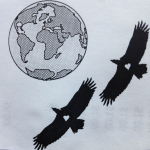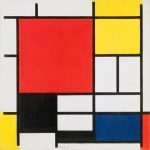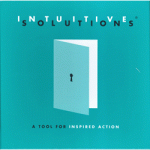In mijn blog van 20 oktober stelde ik dat we toe moeten naar een collectief leiderschap, en dat daarvoor nodig is dat leiders echt leren zich met elkaar (en daarmee met hun ‘volgers’) te verbinden. Ik noemde toen dialoog als een belangrijk middel en stelde dat je dat kunt leren via ‘compassionate listening’ of ‘collaborative communication’.
Over ‘compassionate listening heb ik geschreven in mijn blog van 27 oktober 2012. Dat is op deze website makkelijk te vinden. Als u het daar vertelde verhaal nog niet kent wil ik u graag aanraden dat blog eerst te lezen, want het is heel instructief en ontroerend.
Hier wil ik het vooral hebben over ‘collaborative communication’. Over dit onderwerp heb ik uitvoerig geschreven in mijn boek Spiritueel Leiderschap (Open communicatie, bladzijde 159 e.v.). Hier kan ik er slechts summier op ingaan. ‘Collaborative communication’ is een manier van spreken en luisteren waarbij je niet probeert de ander te veranderen (te overtuigen, over te halen, te beoordelen, gelijk te krijgen), en niet bang bent om je zelf te laten beïnvloeden. Het gaat er uitsluitend om dat je jezelf laat zien aan de ander, en de moed hebt om te zeggen wat je te zeggen heb, jouw waarheid te spreken (in het besef dat ‘jouw’ waarheid niet de waarheid van de ander hoeft te zijn). En dat je bereid bent naar de waarheid van de ander te luisteren, ZONDER METEEN INNERLIJK OF FEITELIJK TE REAGEREN! Dat is het geheim van een goede dialoog.
Dat lijkt zo simpel, maar als we hier echt over reflecteren lijkt het weliswaar eenvoudig, maar niet makkelijk in praktijk te brengen. Ga maar eens na hoe vaak we communiceren met het oogmerk iets te willen bereiken bij de ander, in plaats hem/haar alleen maar te willen zien en begrijpen. En hoe vaak we meteen een reactie klaar hebben, in plaats van het gehoorde eens even op ons in te laten werken.
In mijn vorige blog stelde ik dat er een tijd en gelegenheid is voor verschillende vormen van communicatie: debat, discussie en dialoog. Natuurlijk is het soms nodig om te debatteren of te discussiëren om tot een gemeenschappelijk standpunt of besluit te komen. Maar te vaak wordt er gedebatteerd of gediscussieerd als in feite eerst eens een dialoog zou moeten plaats vinden. Bij ‘collaborative communication’ is het vaak mogelijk tot verrassende inzichten en gemeenschappelijke oplossingen te komen, zonder te verzanden in een onbevredigend compromis.
Dit alles geldt te meer als sprake is van een gezamenlijk leiderschap van een man en een vrouw. Tussen mannen en vrouwen bestaan wezenlijke verschillen in stijl en manier van denken, dat waarschijnlijk veel dieper gaat dan dat het cultureel bepaald is. Door de eeuwen heen heeft dat geleid tot spanningen en onderdrukte conflicten. Dat zit intussen diep in onze genen. Daarom is het noodzakelijk dat we eerst eens echt naar elkaar luisteren, voordat we tot samenwerken (en samen leven!) kunnen komen. Maar als we er in slagen tot een wezenlijk verbinding te komen, dan kan dat tot inzichten (manlijke, of beter gezegd, jang energie) en wijsheid (vrouwelijke of yin energie) leiden. En dat is precies wat de wereld in deze hachelijke tijden nodig heeft.
 En tenslotte, als een vrouwelijke en een mannelijke leider er in slagen op deze manier met elkaar te kunnen communiceren, dat zullen ze dat ook naar anderen toe ontwikkelen. Dan zijn ze een voorbeeld voor hun omgeving, die deze manier van communiceren van hen zal kunnen overnemen. En als dat zou spreiden in de samenleving vindt er werkelijk een culturele quantumspong plaats, en kunnen we versneld de (post-)moderne cultuur integreren in een nieuwe tijd.
En tenslotte, als een vrouwelijke en een mannelijke leider er in slagen op deze manier met elkaar te kunnen communiceren, dat zullen ze dat ook naar anderen toe ontwikkelen. Dan zijn ze een voorbeeld voor hun omgeving, die deze manier van communiceren van hen zal kunnen overnemen. En als dat zou spreiden in de samenleving vindt er werkelijk een culturele quantumspong plaats, en kunnen we versneld de (post-)moderne cultuur integreren in een nieuwe tijd.

 As far as I can see mr. Trump has a psychopathic character structure. Now what does that mean? It means two things. One: he has no conscience as most of us have it. That is not a thing he can be blamed for, it is just a trait of his personality, probably mostly inborn, maybe partly a result of his education. Secondly, having no conscience, he also hasn’t a emotional life as we have it. There are no heart feelings, only emotions that have to do with winning or loosing (triumph, rage). As a result of this he is only motivated by winning. He will do everything to control the situation. That makes him the perfect (successful) fraud. And if he looses (for instant an argument or control), he has only one response: blaming, undermining or humiliating the persons or institutions that defeated him.
As far as I can see mr. Trump has a psychopathic character structure. Now what does that mean? It means two things. One: he has no conscience as most of us have it. That is not a thing he can be blamed for, it is just a trait of his personality, probably mostly inborn, maybe partly a result of his education. Secondly, having no conscience, he also hasn’t a emotional life as we have it. There are no heart feelings, only emotions that have to do with winning or loosing (triumph, rage). As a result of this he is only motivated by winning. He will do everything to control the situation. That makes him the perfect (successful) fraud. And if he looses (for instant an argument or control), he has only one response: blaming, undermining or humiliating the persons or institutions that defeated him. vrouw en een man – maar kan tot een kleine groep worden uitgebreid, waarbij het zaak is dat de verhouding vrouwen/mannen ongeveer 50/50 is.
vrouw en een man – maar kan tot een kleine groep worden uitgebreid, waarbij het zaak is dat de verhouding vrouwen/mannen ongeveer 50/50 is. n het modernisme omstreeks 1890 wordt gedateerd. Het begin van de post-moderne cultuur en het post-modernisme valt wel samen: omstreeks 1950; het jaart
n het modernisme omstreeks 1890 wordt gedateerd. Het begin van de post-moderne cultuur en het post-modernisme valt wel samen: omstreeks 1950; het jaart Het effect van een dergelijke workshop is dat deelnemers en begeleiders in contact komen met transcendent, de persoon en de individualiteit overstijgend, bewustzijn. Als je die ervaring eenmaal gehad hebt, dan kun je eigenijk niet meer geloven dat de werkelijkheid uitsluitend bestaat uit materie, dus uit datgene wat we zintuigelijk kunnen waarnemen. Vandaar de naam van de workshop: we maken een sprong in ons bewustzijn. Dat is een conclusie die niet erg past in deze postmoderne tijd waarin alles immers aan twijfel en scepsis onderhevig is: er bestaan geen waarheden, geen feiten, alleen meningen. (Al menen de materialisten, de sceptici en de fundamentalisten onder ons wel dat zij de waarheid in pacht hebben – quod non).
Het effect van een dergelijke workshop is dat deelnemers en begeleiders in contact komen met transcendent, de persoon en de individualiteit overstijgend, bewustzijn. Als je die ervaring eenmaal gehad hebt, dan kun je eigenijk niet meer geloven dat de werkelijkheid uitsluitend bestaat uit materie, dus uit datgene wat we zintuigelijk kunnen waarnemen. Vandaar de naam van de workshop: we maken een sprong in ons bewustzijn. Dat is een conclusie die niet erg past in deze postmoderne tijd waarin alles immers aan twijfel en scepsis onderhevig is: er bestaan geen waarheden, geen feiten, alleen meningen. (Al menen de materialisten, de sceptici en de fundamentalisten onder ons wel dat zij de waarheid in pacht hebben – quod non). Het is bizar dat het vluchtelingenkamp op Lesbos waar de grote brand uitbrak Moria heet. Het is de bijbelse naam van de Tempelberg in Jeruzalem, zoals we allen weten een heilige plaats. De betekenis van die naam is: ‘de plaats waar wordt gezien’ (maar we hebben juist weggekeken). Moria is ook een meisjesnaam in het Hebreeuws en betekent dan: ‘mijn leraar is God’. Het is ook de naam van het onderaardse dwergenrijk in Midden-aarde, dat beschreven is in de roman ‘In de ban van de ring’ van Tolkien. Het was een plaats geworden van dood en verdoemenis. In dit vluchtelingenkamp, dat plaats bood aan 100o vluchtelingen waren 5000 mensen op elkaar gesmeten. Ook in andere Griekse vluchtelingenkampen was en is de toestand volslagen mensonwaardig – we kunnen ons daar nauwelijks een voorstelling van maken (zie Ingeborg Beugel in Buitenhof,
Het is bizar dat het vluchtelingenkamp op Lesbos waar de grote brand uitbrak Moria heet. Het is de bijbelse naam van de Tempelberg in Jeruzalem, zoals we allen weten een heilige plaats. De betekenis van die naam is: ‘de plaats waar wordt gezien’ (maar we hebben juist weggekeken). Moria is ook een meisjesnaam in het Hebreeuws en betekent dan: ‘mijn leraar is God’. Het is ook de naam van het onderaardse dwergenrijk in Midden-aarde, dat beschreven is in de roman ‘In de ban van de ring’ van Tolkien. Het was een plaats geworden van dood en verdoemenis. In dit vluchtelingenkamp, dat plaats bood aan 100o vluchtelingen waren 5000 mensen op elkaar gesmeten. Ook in andere Griekse vluchtelingenkampen was en is de toestand volslagen mensonwaardig – we kunnen ons daar nauwelijks een voorstelling van maken (zie Ingeborg Beugel in Buitenhof,  Dit is een misstand van heel andere aard. In de burgerluchtvaart is het aanbod van piloten veel groter dan de vraag. Maar als je na je dure opleiding (€ 150.000, waarvoor je je diep in de schulden hebt moeten steken) wil blijven vliegen (anders raak je je brevet weer kwijt, en je moet ook je schuld afbetalen, en voor iets anders ben je niet opgeleid), moet je wel banen accepteren bij de prijsvechters (Ryanair, Easyjet, Germania, Emirates, etc.) waar de arbeidsvoorwaarden elke verbeelding tarten (als je al een baan kan krijgen). Het salaris kan lopen van € -45.000 (ja u leest het goed: je moet betalen om te mogen vliegen) tot € 30.000 (anderhalf maal het minimumloon). Maar dan moet je wel alles zelf betalen:de selectieprocedure, je maaltijden en consumpties onderweg, reis en verblijfkosten als je vanaf een andere luchthaven moet vertrekken of daar moet overblijven, je eigen uniform, pasjes voor de luchthavens, enz, enz, enz. (dat kan het eerste jaar oplopen tot € 45.000). En je schuld afbetalen natuurlijk. Bovendien zijn de werktijden onverantwoord lang. Dat alles leidt tot oververmoeidheid en stress en brengt de veiligheid in gevaar. Voor meer informatie:
Dit is een misstand van heel andere aard. In de burgerluchtvaart is het aanbod van piloten veel groter dan de vraag. Maar als je na je dure opleiding (€ 150.000, waarvoor je je diep in de schulden hebt moeten steken) wil blijven vliegen (anders raak je je brevet weer kwijt, en je moet ook je schuld afbetalen, en voor iets anders ben je niet opgeleid), moet je wel banen accepteren bij de prijsvechters (Ryanair, Easyjet, Germania, Emirates, etc.) waar de arbeidsvoorwaarden elke verbeelding tarten (als je al een baan kan krijgen). Het salaris kan lopen van € -45.000 (ja u leest het goed: je moet betalen om te mogen vliegen) tot € 30.000 (anderhalf maal het minimumloon). Maar dan moet je wel alles zelf betalen:de selectieprocedure, je maaltijden en consumpties onderweg, reis en verblijfkosten als je vanaf een andere luchthaven moet vertrekken of daar moet overblijven, je eigen uniform, pasjes voor de luchthavens, enz, enz, enz. (dat kan het eerste jaar oplopen tot € 45.000). En je schuld afbetalen natuurlijk. Bovendien zijn de werktijden onverantwoord lang. Dat alles leidt tot oververmoeidheid en stress en brengt de veiligheid in gevaar. Voor meer informatie:  On August 4th I predicted that Trump will win the elections. Of course I was not sure, but I thought it highly probable. I still think so, especially after Clinton’s ambiguous reaction about her health, and her slow response to the bombing. So we better prepare for a Trump presidency. The most dangerous thing about Trump is that I hold him capable of triggering the atomic weapons. In the American system as far as I know no one can stop him when he summons the employee who is always nearby and hold the bag with the codes of the nuclear weapons (But maybe this person will refuse to execute Trump’s orders!). Are the majority of Trump voters realizing this? I wonder.
On August 4th I predicted that Trump will win the elections. Of course I was not sure, but I thought it highly probable. I still think so, especially after Clinton’s ambiguous reaction about her health, and her slow response to the bombing. So we better prepare for a Trump presidency. The most dangerous thing about Trump is that I hold him capable of triggering the atomic weapons. In the American system as far as I know no one can stop him when he summons the employee who is always nearby and hold the bag with the codes of the nuclear weapons (But maybe this person will refuse to execute Trump’s orders!). Are the majority of Trump voters realizing this? I wonder. Ik kreeg echter wel een andere aanwijzing uit het spel, met name bij de afsluitende ‘next step procedure’ (een aanwijzing voor hoe je de resultaten van het spel verder in je leven kunt toepassen). De inzicht kaart die ik daarbij kreeg was: ‘Je werkt samen met de krachten (‘forces’) van de natuur.’ Sindsdien worstel ik met de vraag wat die krachten van de natuur eigenlijk zijn, hoe ik ze kan herkennen, en hoe je daarmee kunt samenwerken. Veel verder dan de wel erg algemene begrippen voor natuurkrachten als leven en dood, scheppingskracht, de drang tot voorplanting, vrouwelijke en mannelijke energie (yin en yang) kom ik voorshands nog niet, laat staan dat ik helder krijg hoe ik daarmee kan samenwerken. Maar misschien wordt veeleer bedoeld dat ik samen moet werken met de identiteiten uit het ‘elemental kingdom’, ook al ervaar ik hen niet rechtstreeks. Wat dat in de praktijk zou betekenen is me echter nog een raadsel.
Ik kreeg echter wel een andere aanwijzing uit het spel, met name bij de afsluitende ‘next step procedure’ (een aanwijzing voor hoe je de resultaten van het spel verder in je leven kunt toepassen). De inzicht kaart die ik daarbij kreeg was: ‘Je werkt samen met de krachten (‘forces’) van de natuur.’ Sindsdien worstel ik met de vraag wat die krachten van de natuur eigenlijk zijn, hoe ik ze kan herkennen, en hoe je daarmee kunt samenwerken. Veel verder dan de wel erg algemene begrippen voor natuurkrachten als leven en dood, scheppingskracht, de drang tot voorplanting, vrouwelijke en mannelijke energie (yin en yang) kom ik voorshands nog niet, laat staan dat ik helder krijg hoe ik daarmee kan samenwerken. Maar misschien wordt veeleer bedoeld dat ik samen moet werken met de identiteiten uit het ‘elemental kingdom’, ook al ervaar ik hen niet rechtstreeks. Wat dat in de praktijk zou betekenen is me echter nog een raadsel. Maar als we ons zouden beperken tot deze sombere toekomstbeelden slaat de schrik ons om het hart. Dat kan verlammend werken. Dus zullen we naast deze beelden aandacht moeten geven aan andere denkbeelden, die ook realistisch zijn, en die ergens in ons bewustzijn klaar liggen. En opnieuw kan het helpen, als we die denkbeelden hebben gevonden, ze te versterken met behulp van haiku’s (Over haiku’s: zie mijn blog van 18 augustus). Ik geef weer enkele voorbeelden:
Maar als we ons zouden beperken tot deze sombere toekomstbeelden slaat de schrik ons om het hart. Dat kan verlammend werken. Dus zullen we naast deze beelden aandacht moeten geven aan andere denkbeelden, die ook realistisch zijn, en die ergens in ons bewustzijn klaar liggen. En opnieuw kan het helpen, als we die denkbeelden hebben gevonden, ze te versterken met behulp van haiku’s (Over haiku’s: zie mijn blog van 18 augustus). Ik geef weer enkele voorbeelden: Demagogic leaders, like Donald Trump, are exploiters of fear and anger. The way they do it is outlining a doom scenario and then asserting that they have (or are) the solution. It is exactly what Donal Trump did in his acceptance speech at the Republican Convention, and is doing ever since. It is a well-tried selling technique: telling you have a problem and I have the solution.
Demagogic leaders, like Donald Trump, are exploiters of fear and anger. The way they do it is outlining a doom scenario and then asserting that they have (or are) the solution. It is exactly what Donal Trump did in his acceptance speech at the Republican Convention, and is doing ever since. It is a well-tried selling technique: telling you have a problem and I have the solution.